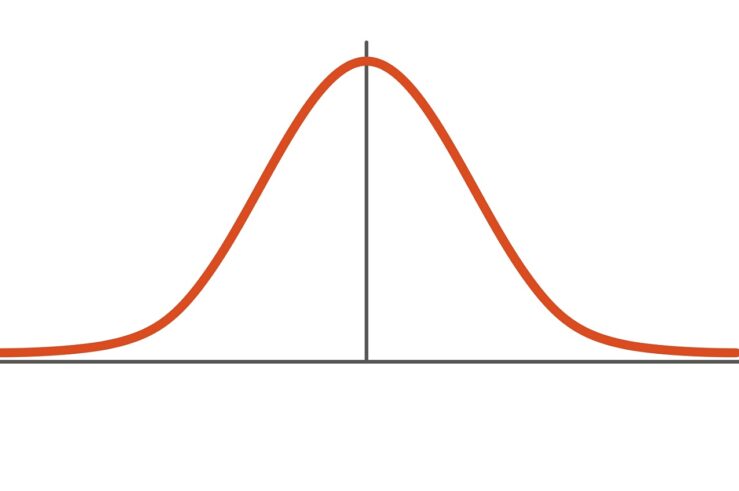Showing results for: “digital markets act”
Abby Normal, a Flood of Ill-Considered Withdrawals, and the FTC’s Theatre of Listening
What will become of our culture if we forget the classics? Two bits seem salient here, would that either were my own. Dr. Frankenstein: Now, that brain you gave me. Was it Hans Delbruck’s? Igor: … [pause] … No. Dr. Frankenstein: Ah! Very good. Would you mind telling me whose brain I did put in? ... Abby Normal, a Flood of Ill-Considered Withdrawals, and the FTC’s Theatre of Listening
The Modern Video Marketplace Does Not Need Help From the FCC
The Federal Communications Commission (FCC) is no stranger to undertaking controversial and potentially counterproductive regulatory projects. The commission’s digital-discrimination proceeding is expected to continue in November, and FCC Chair Jessica Rosenworcel just announced that the FCC will revive the warmed-over corpse of the 2015 Open Internet Order. This latter item highlights how the FCC’s Democratic ... The Modern Video Marketplace Does Not Need Help From the FCC
The FTC’s (and DOJ’s) Merger Aversion
There is mounting evidence that both the Federal Trade Commission (FTC) and the U.S. Justice Department’s (DOJ) Antitrust Division (DOJ) are, under their current leadership, hostile to mergers. There are multiple elements to this evidence. Draft Merger Guidelines The recently released draft merger guidelines provide a strong indication of the agencies’ general aversion to mergers. ... The FTC’s (and DOJ’s) Merger Aversion
Health Care and Health Insurance Merger Retrospective: A Personal Law & Economics Experience
My colleagues at the International Center for Law & Economics (ICLE) often engage not only in excellent analysis of proposed mergers and acquisitions, but also have been known to offer retrospectives on past mergers. Today, I want to offer a very personal version of this. A little background: on June 3, 2022, I was diagnosed ... Health Care and Health Insurance Merger Retrospective: A Personal Law & Economics Experience
What Does NetChoice v. Bonta Mean for KOSA and Other Attempts to Protect Children Online?
With yet another win for NetChoice in the U.S. District Court for the Northern District of California—this time a preliminary injunction granted against California’s Age Appropriate Design Code (AADC)—it is worth asking what this means for the federally proposed Kids Online Safety Act (KOSA) and other laws of similar import that have been considered in ... What Does NetChoice v. Bonta Mean for KOSA and Other Attempts to Protect Children Online?
Net Neutrality II: Electric Boogaloo—Rate Regulation Hiding in Plain Sight
Federal Communications Commission (FCC) Chair Jessica Rosenworcel on Tuesday announced the agency’s proposal to regulate internet services under Title II of the Communications Act. Commonly referred to as “net neutrality,” the chair plans to release proposed rules today, with a vote scheduled for Oct. 19 to begin the rulemaking process. Rosenworcel’s speech identified several areas ... Net Neutrality II: Electric Boogaloo—Rate Regulation Hiding in Plain Sight
FTC’s Amazon Complaint: Perhaps the Greatest Affront to Consumer and Producer Welfare in Antitrust History
“Seldom in the history of U.S. antitrust law has one case had the potential to do so much good [HARM] for so many people.” – Federal Trade Commission (FTC) Bureau of Competition Deputy Director John Newman, quoted in a Sept. 26 press release announcing the FTC’s lawsuit against Amazon (correction IN ALL CAPS is mine) ... FTC’s Amazon Complaint: Perhaps the Greatest Affront to Consumer and Producer Welfare in Antitrust History
An FTC Complaint Against Amazon Gets Personal
There is much in the Federal Trade Commission’s (FTC) record over the past two years that could be categorized as abnormal. There is, for instance, nothing “normal” about using the threat of excessive force to cower businesses into submission. Introducing sky high costs for the filing of mergers isn’t normal, as it will scare away ... An FTC Complaint Against Amazon Gets Personal
More FTC Overreach in Labor Markets
The Federal Trade Commission (FTC) and U.S. Labor Department (DOL) signed a memorandum of understanding (MOU) this past week “to strengthen the Agencies’ partnership through greater cooperation and coordination in information sharing, investigations and enforcement activity, training, education, research, and outreach.” The accompanying Sept. 21 announcement is another example of FTC overreach, as it highlights ... More FTC Overreach in Labor Markets
The Marketplace of Ideas: Government Failure Is Worse Than Market Failure When It Comes to Social-Media Misinformation
Today marks the release of a white paper I have been working on for a long time, titled “Knowledge and Decisions in the Information Age: The Law & Economics of Regulating Misinformation on Social-Media Platforms.” In it, I attempt to outline an Austrian law & economics theory of state action under the First Amendment, and ... The Marketplace of Ideas: Government Failure Is Worse Than Market Failure When It Comes to Social-Media Misinformation
Abandoning Antitrust Common Sense: The FTC’s New Normal?
This symposium wonders what exactly is “The FTC’s New Normal”? The short answer: scary. The current Federal Trade Commission (FTC) leadership is clear that old U.S. Supreme Court opinions, rather than more recent jurisprudence, are their lodestones for antitrust analysis. This is dramatically illustrated by the draft merger guidelines recently proposed by the FTC and ... Abandoning Antitrust Common Sense: The FTC’s New Normal?
ICLE on the ACP, BEAD in the Spotlight, Small Steps Toward Ending the Spectrum Impasse
School’s back in session and the Telecom Hootenanny is heating up. We’ve got a hot-off-the-presses issue brief on the ACP, more BEAD agonistes, and the latest on spectrum auctions. The Affordable Connectivity Program: ‘Good Enough’ to Keep Funding In a new International Center for Law & Economics (ICLE) issue brief, Kristian Stout and I examine ... ICLE on the ACP, BEAD in the Spotlight, Small Steps Toward Ending the Spectrum Impasse
















